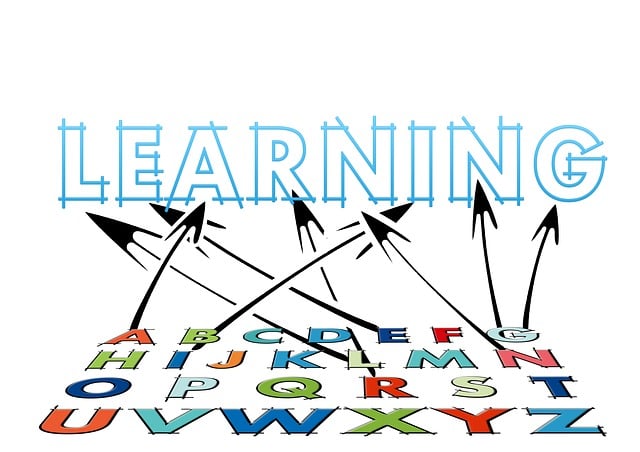Share This Article:

Improving Health Literacy and the Role of the Workers’ Compensation Case Manager
25 Sep, 2024 Anne Llewellyn

Case Management Focus
Educating a person about their conditions, plans of care, recovery and return to work is one of the most important things a nurse case manager can do when working with an injured worker. To do this, case managers must meet each patient where they are and assess their health literacy skills.
In this article, I want to share information that will help you improve your skills in the area of health literacy so you can be successful in educating patients.
First, we have to remember that when someone is injured or diagnosed with an illness, they are scared, confused, worried, and unsure of their future. They need to understand the complex healthcare system is and how it works to meet their needs. They trust that doctors, nurses, and all team members communicate well with each other about their condition and needs. When thrust into the healthcare system, they are forced to depend on people they don't know. So, helping them understand what is going on, setting realistic expectations, and using plain language when talking to them are essential.
Personal health literacy is defined as the degree to which people are able to find, understand, and use medical information and services. This information empowers them to be part of the team and make informed health-related decisions and actions for themselves and others.
Ways case managers can help improve health literacy for the injured patients:
- Help the injured worker understand their medical conditions, treatment plans, and the importance of following their prescribed medications and care plan.
- Case managers can improve the confidence of injured workers by ensuring that they know what to expect when talking to their doctors, therapists, and other members of the treatment team.
- They can help the injured worker and family members gain a stronger voice when communicating questions and worries with other healthcare team members.
- Case managers work with the healthcare team to help the injured workers make better, more informed decisions about various medical procedures, such as tests and medications, and ensure the person fully understand these decisions in terms of goals, risks, and projected outcomes.
- Case managers can also play an essential role in helping injured workers use digital tools like patient portals, telehealth, apps, and other innovations that can enhance engagement in their care. Being engaged empowers the injured worker in their care to gain control they lost due to their injury or illness. Helping the injured workers advocate for themselves is something every patient needs to do.
How do we know the injured worker understands what we are teaching them?
Nurse case managers are familiar with the ‘teach-back method,' which has a valuable role in supporting improved health literacy. The concept behind the teach-back method is having patients repeat what was explained to them in their own words. This allows the nurse case manager to assess the injured workers' understanding of what was said to them. Clarifications can be made so things are clearer and we understand the persons anxieties.
Other strategies for achieving health literacy goals include gaining a greater understanding of the injured workers’ personal concerns and needs by listening to them closely to identify misconceptions in their thinking. Re-explaining things helps people better grasp complicated processes. Having a family member also be part of the discussion is also good, as people don't always grasp the information, so having a second set of ears helps with this.
Asking the patient-specific questions about their medications (e.g., their purpose and how they should be taken) allows the case manager to determine whether the patient truly understands.
The case manager can also help the injured worker prepare information for their doctor's appointments and interpret information patients receive from other healthcare professionals and insurance companies.
Avoid using medical terms but instead speak in simple language that is understood by both the patient and the family.
Finally, being mindful of the injured worker's body language and facial expressions can help you assess and understand whether the information being conveyed is getting through or needs to be clearer.
I hope this article provides insight into improving your patients' health literacy. If you have tips you have learned from your practice, feel free to email me at allewellyn48@gmails.com.
AI california case management case management focus claims compensability compliance courts covid do you know the rule emotions exclusive remedy florida FMLA fraud glossary check Healthcare health care hr homeroom insurance insurers iowa leadership medical NCCI new jersey new york ohio osha pennsylvania roadmap Safety state info technology texas violence WDYT what do you think women's history women's history month workcompcollege workers' comp 101 workers' recovery Workplace Safety Workplace Violence
Read Also
- Apr 25, 2025
- Liz Carey
- Apr 24, 2025
- Frank Ferreri
About The Author
About The Author
-
Anne Llewellyn
Anne Llewellyn is a registered nurse with over forty years of experience in critical care, risk management, case management, patient advocacy, healthcare publications and training and development. Anne has been a leader in the area of Patient Advocacy since 2010. She was a Founding member of the Patient Advocate Certification Board and is currently serving on the National Association of Health Care Advocacy. Anne writes a weekly Blog, Nurse Advocate to share stories and events that will educate and empower people be better prepared when they enter the healthcare system.
More by This Author
Read More
- Apr 25, 2025
- Liz Carey
- Apr 24, 2025
- Frank Ferreri
- Apr 24, 2025
- Liz Carey
- Apr 24, 2025
- Claire Muselman
- Apr 24, 2025
- Chris Parker




